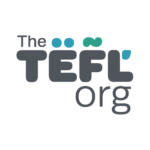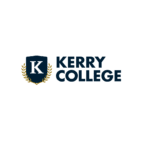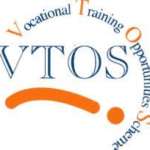What is it
Contemporary Irish society differs from the past in numerous ways. For one thing, there is no longer a single family model where one parent works while the other manages the home; instead there are a variety of family arrangements as people often juggle multiple jobs, pursue their professional ambitions, or strive to overcome their economic woes through further education or training. As a result of such permutations, there is a greater demand for childcare professionals. Naturally this means that the opportunities for people considering childcare as a career or part-time work option have increased. Creches, nurseries, play-schools, pre-schools, in-home child-minders, babysitting agencies, and so on, all need qualified staff to take care of children in a responsible and appropriate manner.
Part-time Childcare courses are specifically designed to help people gain the necessary experience, skills and training to provide high-quality childcare in a variety of environments.
What does it involve The extensive range of childcare training options available to learners will cater for all experience levels and specialisations from introductory-level courses to diploma programmes, and from Child Health to Child Psychology. Part-time Certificate programmes in Childcare offer students an ideal introduction to the area. These are generally suitable for those hoping to pursue a career in childcare (in both the private and community sectors), but will also meet the needs of anyone already working in childcare areas including nurseries, creches, early childhood education centres, and so on.
Typical modules include Child Development, Communications, Working in Childcare, and Art and Craft for Childcare. While general Childcare programmes can provide an excellent overview towards better understanding a child`s social, emotional and physical development, learners may also specialise their training so that they acquire a greater level of expertise in a particular area. Dedicated Child Health and Well-being courses equip participants with the knowledge and skills needed to maintain healthy, hygienic and safe practices and environments for the children in their care. Of course a child`s mental and emotional well-being are just as important as their physical health. Part-time programmes in Child Psychology will introduce students to the methods, language and practice of child psychology. Students on Child Psychology courses will examine the core issues of a child`s psychological development. These include areas such as language acquisition and usage, cognitive behaviour, and socialisation all of which play a vital role in the emergence of the child as an individual.
The purpose of the Child Psychology course is to introduce the student to the methods, language and practice of child psychology. It examines the core issues in relation to psychological development including language, thinking and socialisation with particular focus on the emergence of the child as an individual. Students looking to advance their training may also consider enrolling on an advanced certificate programme, which will cover topics such as Supervision in Childcare and Social and Legal Issues. As well as offering excellent training in their own right, advanced certificates are also useful as they can be used as part of application for a related third-level programme.
Because many candidates may not have the time or capacity to attend courses in person, some colleges also offer a distance learning option. Indeed it is possible to graduate with an online Diploma in Childcare in less than a year; and courses are not aimed solely at those looking to establish careers in the area; they are also intended for any parents looking to develop their parenting skills. Some of the modules typical of a distance learning course include Child Behaviour, the Importance of Play, Nutrition, and Proper Management of Childcare Services.
Why do it Understanding a child`s emotional and educational needs is essential if we are to help them develop their potential and maximise their happiness. This holds true for parents and professional carers alike. Childcare courses facilitate such ends and teach child-minders to communicate more effectively with children. It is also worth bearing in mind that working with a large number of kids requires skills and knowledge that few people possess innately. Instead, it often takes time to develop the ability to deal with the awkward or difficult situations that can arise while working with children.
What comes next Understanding and caring for children are considered to be important life skills by most people. While part-time Childcare course are an excellent source of guidance for both parents and parents-to-be, they are also the ideal source of preparation for those wishing to secure positions as childcare workers, special needs assistant, child-minders, youth workers with community outreach programmes, among others.
At a glance A part-time course in Childcare will take between 18 weeks and one year to complete. Course fees are generally from 500 euro upwards. A Child Health and Well-being programme will last for around 10 weeks and cost approximately 290 euro. Advanced Certificate programmes are of one year`s duration, with a typical fee of around 1600 euro. Online courses can run for a total of 40 hours or for 9 months, depending on the qualification on offer. Check with course provider for fees.


















